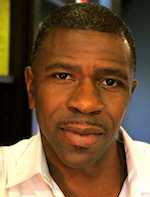According to the Chronicle of Evidence-Based Mentoring, "Reed Larson’s seminal research on the lives of teenagers helped to launch the field of positive youth development, and his insights and findings continue to enrich the work of mentoring researchers. His work explores the contexts of daily life and how developmental processes unfold in extra-curricular activities."
Researcher, Deborah Vandell (UC Irvine), stated, "Reed Larson did some really important work looking at the development of initiative and engagement. What he found is that when children are in school what they often are doing is putting forth a lot of effort, but they're not really motivated. What happens in afterschool activities, when they're really working, when they're active, they're choosing those activities and they are also focused on them. It's the best combination for learning."
Reed Larson will share his work at a Speaker's Forum entitled, "How Demanding Program Roles Can Facilitate Youth’s Positive Development" on April 19, 2019 in Oakland, CA. You can register here. We recently interviewed Reed and some of his responses are below.
 |
| Reed Larson |
A: I have done research and teaching on the age period of adolescence all my life. We know it is a time of enormous potentials for growth. Yet our society does not get that. Teens are disrespected, misunderstood, and terribly underestimated. As a result, they are not given the opportunities to develop their potentials. I discovered that after school and out of school programs were the main exception. They are a part of teens’ lives where they have opportunities to develop their full potentials.
Q: The work of promoting youth development is not easy. In your research, what did you find to be the greatest challenges facing youth workers?
A: There are a lot of challenges: being present and attuned to youth, being both a friend and a mentor, teacher, or sometimes parent; seeing societal injustice and hurt in teens; having too few resources; taking care of yourself at the same time you are engaged in caring relationships with others.
Q: What settings and practices are most successful in engaging youth?
A: I don’t claim to have all the answers. But in our research, youth have described becoming highly motivated in youth program settings where they feel safe, feel they belong, experience positive relationships, and experience a culture that supports these positive ways of being. Further, in settings where they are engaged in activities: that have meaningful goals, are challenging while allowing them to experience competence, and involve high-functioning collaborative relationships. I’ve also observed that high quality programs provide an environment that helps youth disengage from distractions and anxieties in their lives at the beginning of the program session, and reflect on what they have learned at the end.
Q: What is the most important lesson that you learned in your research?
A: I have seen again and again that young people have enormous resources. They can be extremely resilient. They are eager, active learners who learn from experiences. They are ready to have deep insights about complex social and emotional truths. We just need to provide the right conditions for them to feel save, loved, and to see a way forward.
Q: What most surprised you?
A: It is maybe not a surprise, but I have been impressed by meeting many, many wonderful, smart, and caring people who have devoted themselves to working with young people. It has been increasingly clear to me that to improve programs the field needs to seek out, understand, and draw on the expertise of experienced youth development practitioners. Communication between researchers and practitioners need to involve two-way conversations.
Q: What are you working on currently?
A: We just finished a research paper on how “substantive demanding roles” can provide powerful opportunities for youth’s development of new competencies, including responsibility to others. (This will be the main topic of my Speaker's Forum presentation). Although my research has been mainly focused on processes of positive development, I am currently interested in times when youth in programs experience “psychological meltdowns” from a setback or being overwhelmed, and how staff are effective in helping youth respond with resiliency.
----------------
Reed Larson’s seminal research on the lives of teenagers helped to launch the field of positive youth development, and his insights and findings continue to enrich this field. His work has involved over a thousand interviews with youth and front line staff in diverse youth development programs. It has focused on understanding how developmental experiences unfold in programs (including extracurricular activities) and how program staff are effective in supporting these learning processes. His team’s research was the basis for the Weikart Foundation’s research-practitioner collaboration that identified effective staff practices for supporting social emotional learning in programs. Reed is a professor in the Department of Human Development and Family Studies at the University of Illinois at Urbana-Champaign and was recently the President of the Society for Research on Adolescence. He also served as Editor-in-Chief of New Directions for Child and Adolescent Development (with Lene Jensen).











